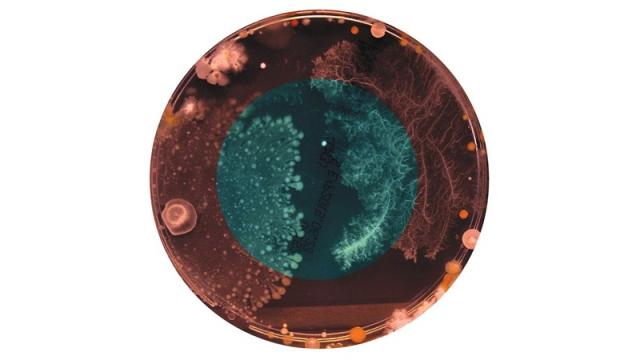Your belly button is teeming with microbial life — a mix of many different species unique to you. Brooklyn-based artist Joana Ricou creates “portraits” based on individual microbiomes. The result is some surprisingly lovely imagery.
Esther, Cornwall (2015). All images courtesy of Joana Ricou. Used with permission.
Science has always informed Ricou’s art. Originally from Portugal, she studied art and biology at Carnegie Mellon University, spending equal time in both the laboratory and the art studio. For the microbiome portraits, she partnered with biologists Rob Dunn and Holly Menninger, both at North Carolina State University. Dunn and Menninger have been studying the teeming life inside our navels for several years as part of a research collective called Your Wild Life.
More than 500 people volunteered a sample of their navel lint, which were then lovingly nurtured in a Petri dish. They found more than 2400 different species of flora; an individual has, on average, 67 different types of flora sharing their personal space. Ricou used those sample microbiomes as her inspiration for creating microbiome “portraits”. As she writes at her website:
Each portrait is a living painting, created with the other selves of the portrait’s subject. The living painting is a culture of the bacteria and other living things collected from the subject’s bellybutton. It is thought that the microbiome of each person is as unique as our fingerprint, and that it comes from our enviorment [sic] and from our mothers. The bellybutton, biologically and symbolically, signifies the uniqueness of the individual and a connection to birth and our mothers.
You can check out a sampling of these unique artworks in the gallery below. If you happen to be in Berlin, her work is featured in an exhibit that runs until April 30 at the Art Laboratory Berlin. See more of Ricou’s work here.
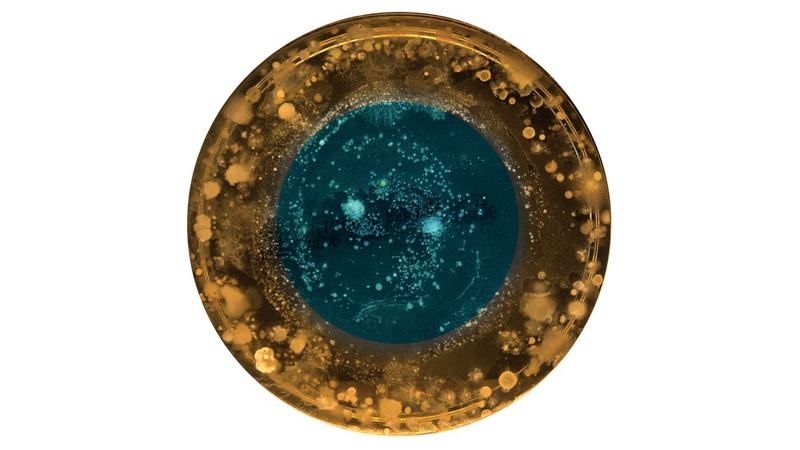
Celine, Cornwall (2015)
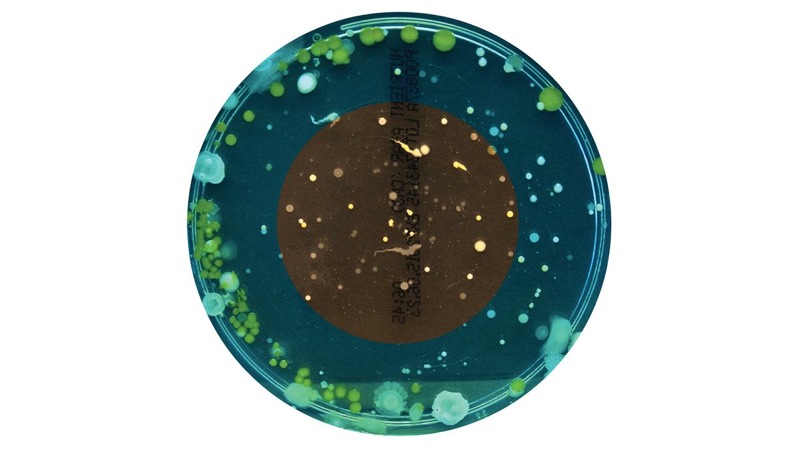
Clive, Cornwall (2015)
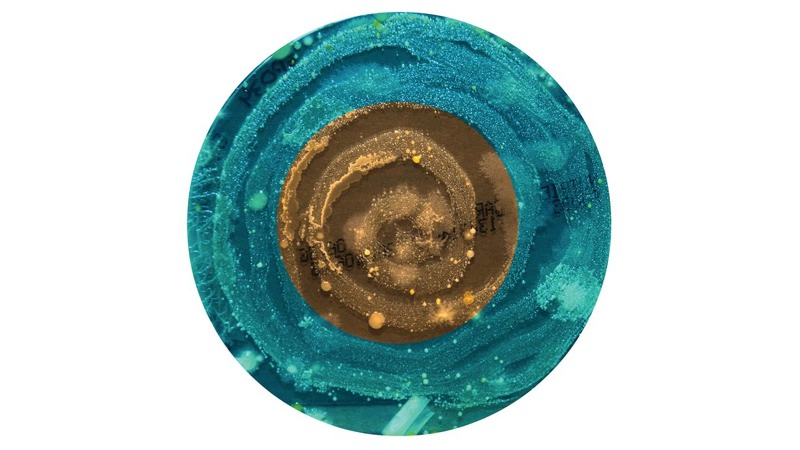
Derwent, Cornwall (2015)
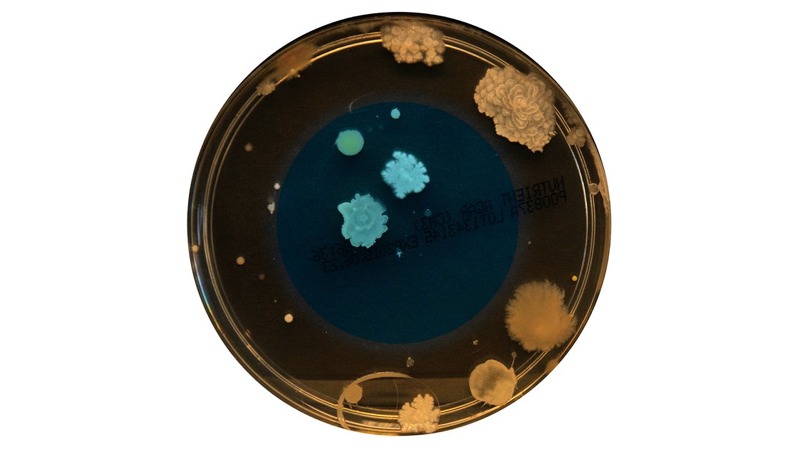
Eleri, Cornwall (2015)
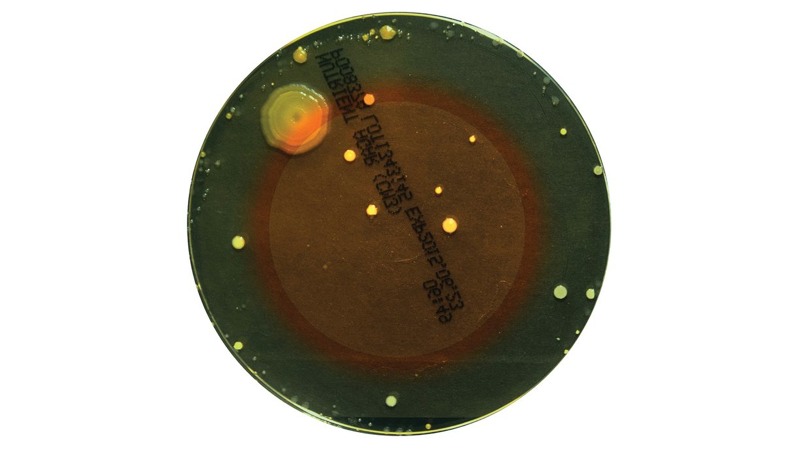
Lawrence, Cornwall (2015)
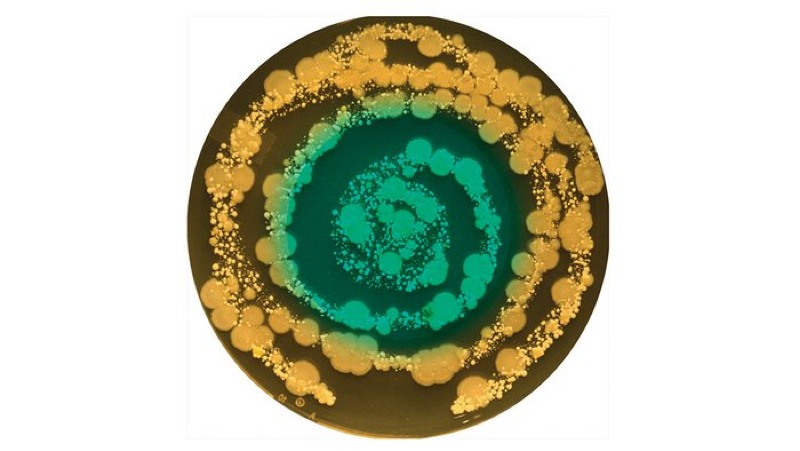
Cesar, Brooklyn. (2014)
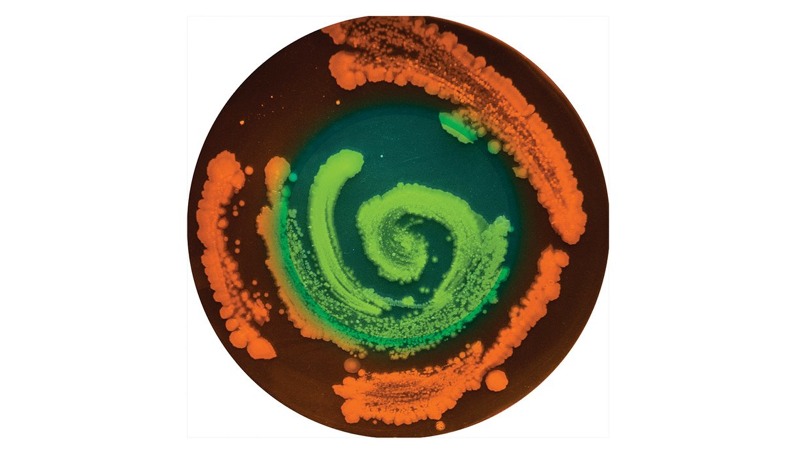
Darren, Raleigh. (2014)
[Joana Ricou via The Guardian]
